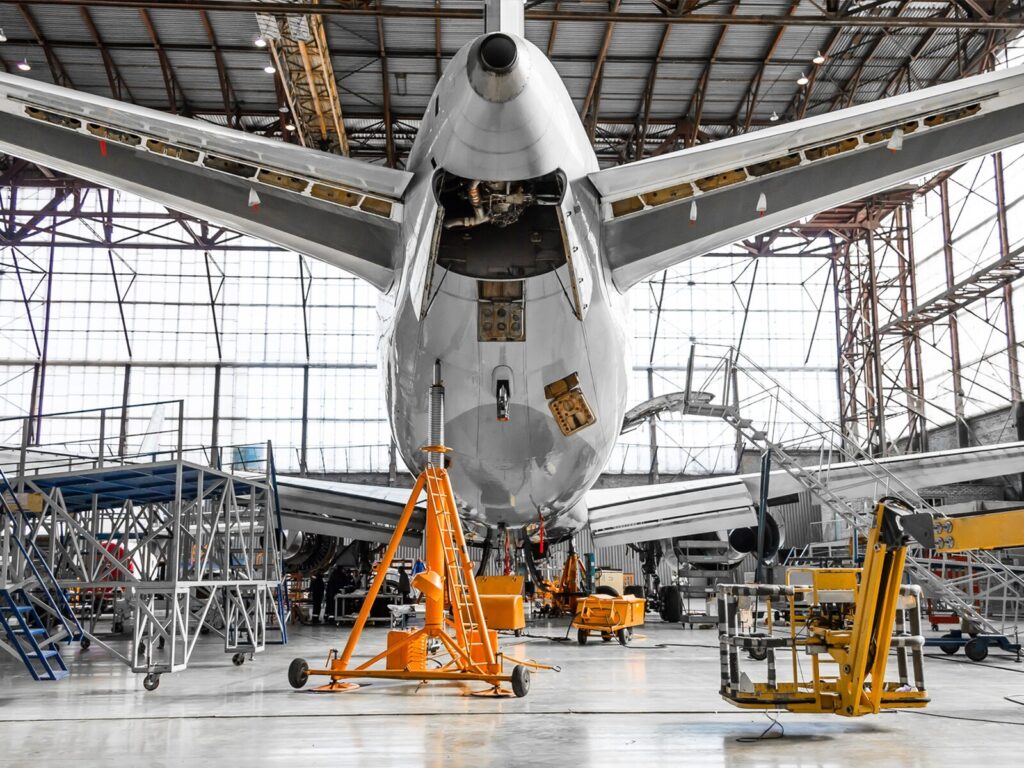RTCA DO 311 Performance Testing for Rechargeable Lithium Batteries
The ATS Family of Companies (FoC) promotes safe aviation through RTCA/DO-311 performance testing for rechargeable lithium batteries. Lithium-ion (Li-ion) batteries are rechargeable secondary batteries which consist of a graphite anode and a cathode capable of quickly and repeatedly releasing lithium ions. Most modern aircraft use some form of battery power to operate equipment, such as:
- Auxiliary power unit (APU)
- Emergency lighting
- Emergency locator transmitter (ELT)
Aerospace manufacturers must balance battery power and reliability with a safe design. Rechargeable secondary batteries may leak, short-circuit, and experience overcharging or overdischarging, which can degrade the battery’s quality. The different failure modes and chemical reactions also put the entire aircraft in danger of a Class D fire, explosion, and exposure to hazardous fumes and corrosive chemicals.
What Is RTCA/DO-311?
RTCA document 311 is a Minimal Operation Performance Standard (MOPS) that guides effective design, testing, and analysis of batteries permanently installed on an aircraft. RTCA DO-311 standardizes the performance testing methods for battery verification and characterization, allowing manufacturers to ensure their product fulfills regulatory and safety requirements.
Following industry standards such as RTCA/DO-311, our experts can perform mechanical and electrical tests on battery prototypes to uncover potential safety hazards before the product reaches the market. We offer mechanical testing according to DO-311 to simulate real-world forces and conditions that may jeopardize battery function and safety, such as:
- Drop Impact
- Explosion Containment
- Handle Strength
Electrical Abuse Testing
Electrical abuse tests can help ensure the safe function of the battery and battery system despite various forms of electrical abuse. We conduct electrical safety and performance testing according to RTCA/DO-311, including:
- Capacity Test
- Charge Acceptance
- Charge Retention
- Constant Voltage Discharge
- Insulation Resistance
- Overcharge
- Overdischarge
- Rapid Discharge
- Short Circuit
A2LA-Accredited Laboratories
Our battery testing lab is ISO/IEC 17025:2017-accredited to provide ISO/IEC 17025 electrical testing on batteries of various chemical makeups at the cell, module, and pack levels. We utilize powerful equipment capable of reaching the following extremities:
- Power: 300 kilowatts (kW)
- Current: +/- 1040 ampere (A)
- Voltage: to 750 volts (V)
- Temperature Chamber Range: -68 to 120 ˚C
- Water Bath Temperature Range: 5 to 70 ˚C
Along with our state-of-the-art labs, we maintain a Hazard Containment Room (HCR) dedicated to high-risk battery testing. The room’s design is robust enough to contain explosions, douse fires, exhaust flammable gases, mitigate heat release, and regulate airflow. The room’s sophisticated design helps ensure the safety of our battery experts and building personnel.
The ATS FoC can further support the aerospace industry with:
- Avionics calibrations
- Battery application development
- Nondestructive Inspections (NDI)
Meet the ATS FoC
The ATS FoC is an expanding network of companies with locations nationwide. We provide consulting engineering, calibration, inspection, and testing services to empower clients in a variety of industries and business sectors. Some of the industries we serve include aerospace, automotive, and power generation.
Our qualified experts strive to provide high-quality customer service through a quick turnaround rate, comprehensive analysis, and testing to the highest standards. We maintain a company-wide ISO 9001:2015 registered Quality Management System and operate multiple ISO/IEC 17025:2017-accredited labs that provide ISO/IEC 17025:2017 calibrations and electrical, chemical, mechanical, and nondestructive testing.
Contact Us
Call +1 (888) 287-5227 or fill out the form on this page to request lithium battery performance testing with the ATS FoC. Let our experts help ensure aircraft safety in the skies and on the ground.



